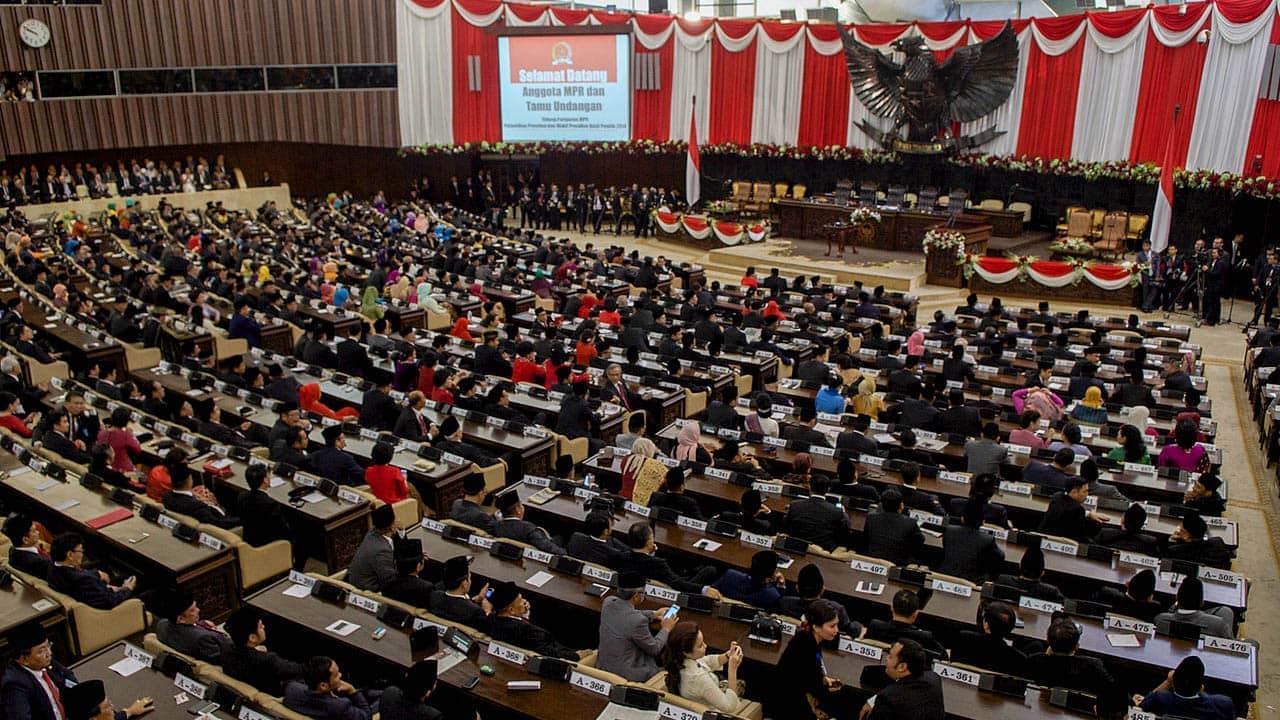
February 17, 2009 | Parliament of Indonesia
On February 17, 2009, PGA organised a Working Meeting on the International Criminal Court hosted by the Chairs of Commission III (Law and Human Rights), Commission I (Defense and Foreign Affairs) and the Legislative Council of the Indonesian Parliament. During the course of this Meeting, Indonesian Parliamentarians from all major political parties called for the swift completion of the process of national accession tothe Rome Statute of the International Criminal Court (ICC).
The Meeting took place on the occasion of the visit of an international delegation of MPs to Jakarta, led by Canadian Senator A. Raynell Andreychuk (Chair, Human Rights Committee) and included also Australian MP Melissa Parke (Chair, Australian Commission for Law Enforcement Integrity). The PGA Delegation was officially acknowledged by the Indonesian House ofRepresentatives upon their arrival in the plenary Parliament Hall andhad a bilateral preparatory meeting with the Indonesian Civil Society Coalition for the ICC.
The Working Meeting, attended by more than 50 participants, was opened by PGA Indonesia Chair Dr. Theo Sambuaga MP (Chair, Commission I) and closed by PGA Indonesia Secretary Ms. Nurshyabani Katijasungkana, MP (Deputy Chair, Commission III). Both Lawmakers stressed the importance of theICC as a tool to fight impunity and prevent atrocities.
Lawmakers at the Meeting agreed with the key-note speaker Mr. John Holmes, Ambassador of Canada to Indonesia, who recalled that the ICC jurisdiction is non-retroactive, is complementary to domestic jurisdictions and is designed to strengthen national legal systems,which retain the primary responsibility to bring to justice the perpetrators of international concern. Several MPs and Civil Society organisations questioned the Government concerning the delay of the ICC Accession process, which was earmarked for completion before the end of 2008 in the National Human Rights Plan 2004-09 and was announced by Foreign Minister Hassan Wirayuda at a previous PGA event held in Parliament in February 2007.
The Director General for Human Rights of the Department of Law and Human Rights, Prof. Harkristuti Harkrisnowo,explained that the Government has been engaged in an inclusive processof consultations, sensitization and legal drafting, but acknowledged that the deadline of 2008 had been missed and that the relevant ICCAccession Bill and explanatory note (the "Academic paper" accompanying the Bill) should be now expedited.
All participating MPs concurred on the urgency of the matter, and welcomed a proposal formulated by former Attorney-General Dr. Marzuki Darusman, MP - that the ICC Accession Bill should be approved in Parliament betweenMay and June of 2009, thus allowing Indonesia to become the largest ICC Member State within the current Legislature. All speakers andparticipants agreed that there was no outstanding political or legal obstacle to Indonesia's Accession to the Rome Statute, and that now it is simply a matter of accelerating and completing the necessary procedures within the Government, which was urged to transmit the ICC Accession Bill as early as possible.
